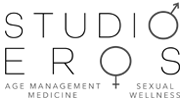Women’s Sexual Health Questions and Answers
Do you have questions about your sexual health? Come to StudioEros with all of your sexual health concerns! Call us now! We serve patients from Falls River MA, Berkley MA, Rehoboth MA, Swansea MA, and Somerset MA.


Table of Contents:
What types of sexual problems affect women?
Why is sexual health important?
What are the signs of a sexually healthy woman?
Aspects of communication include being able to:
How can I achieve sexual health?
Sexual health is an important aspect of every woman’s life. Just as it is important to have good physical, mental and emotional health, good sexual health is vital to a good quality of life. There are many different facets of sexual health, including education, communication and prevention.
There are many different types of sexual problems that affect women, including:
Low sexual desire -This is the most common sexual problem that affects women and involves a lack of sexual interest and willingness to be sexual.
Sexual arousal disorder – This occurs when desire for sex is present, but there are difficulties with arousal, an inability to become aroused or maintain arousal during sexual activity.
Orgasmic disorder – This occurs when there is persistent or recurrent difficulty in achieving orgasm after sufficient arousal and sexual stimulation.
Sexual pain disorder – Sexual pain disorder occurs when there is pain associated with sexual stimulation or contact.
Sexual health is just as important as physical health and mental health. Sexual health is important because it allows a person to live a good quality of life, including having a healthy relationship, understanding the risk factors involved in sexual relations, the ability to reproduce and live a disease-free life. Sexual health is an essential part of living an authentic life and can improve many other aspects of a person’s life, including mental, physical and emotional wellbeing.
There are many signs that a woman is sexually healthy, stemming from several different aspects of sexual health, including communication, education, prevention, relationship practices and self-esteem.
• Interact with all genders and people in appropriate and respectful ways
• Ask other adults about questions sexual issues
• Communicate sexual limits
• Accept refusals of sexual relations without animosity
• Physically express feelings of attraction and desire in ways that are not inherently sexual (holding hands, embracing, etc.)
• Discuss limitations, contraception and the meaning of sex in a relationship before it occurs
• Communicate with partners their intentions for the relationship (such as simply dating, or looking for marriage)
• Listen to and respect others’ boundaries and limits
• Be sensitive to non-verbal cues of others’ limits and boundaries
Aspects of relationship practices include being able to:
• Develop friendships that do not have sexual intentions
• Avoid exploitative relationships
• Choose partners who are responsible, trustworthy and safe
• Be sexually intimate without being physical, such as verbally expressing attraction, discussing sexual feelings and doing romantic gestures that elicit desire
• Take personal responsibility for their own boundaries
Aspects of self-esteem include being able to:
• Appreciate one’s own body
• Look at and touch their own body without feeling shame or disgust
• Have the capacity to nurture themselves and others
• Accept nurturing from others
• Have a developed sense of self
• Have an understanding of who they are
• Allow themselves to be vulnerable
• Be comfortable with their sexual identity and orientation
• Take steps to address issues that have occurred as a result of past experiences, including trauma
• Feel confident in their ability to set boundaries
Aspects of education include being able to:
• Realize the consequences of sexual activity
• Understand that the drive for sex is a powerful, fundamental part of the human experience and can be integrated into one’s life in positive and healthy ways
Aspects of personal values include being able to:
• Decide on what is personally “right” and exhibit these values
• Demonstrate tolerance for people with different values
Aspects of prevention and protection include being able to:
• Take responsibility for their own body
• Use contraception effectively to avoid unplanned pregnancy
• Use condoms and safer sex to prevent contracting or spreading a sexually transmitted infection
• Practice health-promoting behaviors, such as regular checkups, regular and routine testing for STDs and perform self-exams
Good sexual health can be achieved through a number of different aspects, including:
• An environment and a view of self that promotes positive and healthy views of sexuality
• Access to accurate, useful and extensive information and resources about sexuality that promotes healthy behaviors
• Knowledge of the risks of unprotected sex and the preventative steps one can take to make sexual activity as safe as possible
• Access to sexual health care
If you or someone you love has questions about their sexual health, come to StudioEros to find the answers you need! Our kind and compassionate professionals are dedicated to providing the highest level of care to each and every individual. With many years of experience in sexual health, our professionals deeply care about the wellbeing of everyone who walks through their door and aim to improve their quality of life. Call us today to book an appointment! We look forward to serving you!

Additional Services You May Like
▸ BHRT
▸ ThermiVa
▸ IV Nutritional Therapy
▸ Extracorporeal Shock Wave Therapy (ESWT)
▸ V-Fit Home Vaginal Health
▸ Women’s Sexual Health




